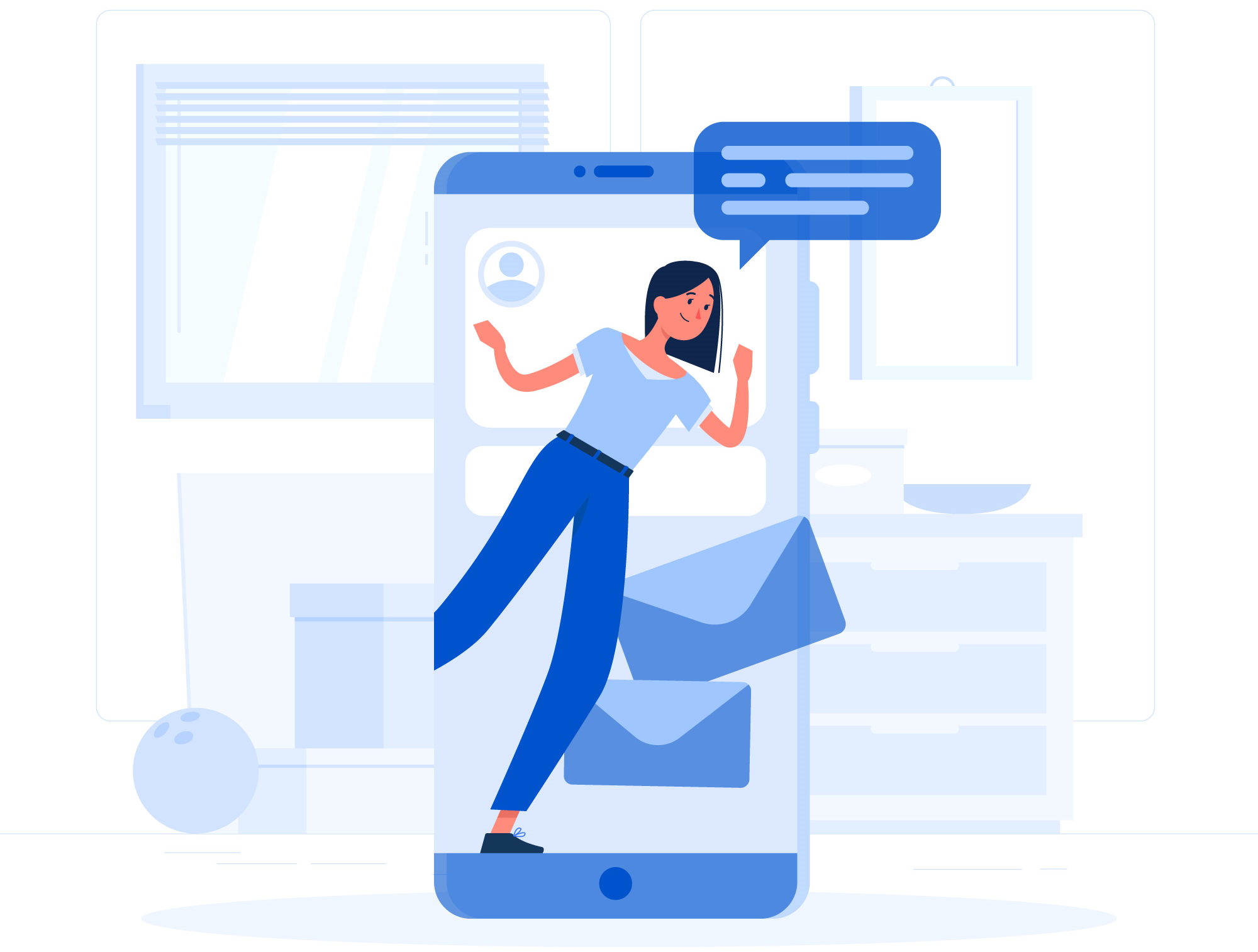Consumers naturally want companies to treat them as individuals, and to feel they're being offered a product that recognizes and addresses their specific needs. At the same, it's difficult to engender this sentiment when sending out marketing emails en masse to hundreds or even thousands of people. Email personalization helps to reconcile these two things, however, by empowering businesses to provide bespoke experiences to large customer bases. Here are six personalization techniques to build customer engagement:
- Personalized Your Sender Info
- Segment Your Subscribers
- Utilize Dynamic Offers
- Create Trigger Emails
- Offer Tailored Recommendations
- Establish a Reward System
1. Personalized Your Sender Info
When we talk about email personalization, the first thing many of us likely think of is marketing emails that include the recipient's name at the beginning. Few of us immediately consider the details of the sender, but they are nonetheless equally important. Customers need to feel recognized, but they also need to identify something in your organization that resonates with them, and they're much less likely to do so if the marketing content they receive comes from a nameless, faceless entity. According to a report, 82% of marketers worldwide were using email marketing as of 2020, so the need the stand out is abundantly clear. Using the name and face of a real person in your marketing emails can help to establish a human connection and build brand engagement with subscribers. It sounds like an extremely simple technique – and that's because it is – but its effectiveness is inarguable.2. Segment Your Subscribers
One of the most crucial parts of email marketing is segmentation. In modern business, sending out generic emails to all of your subscribers is highly counterproductive. While it may be tempting to cast a wide net with your marketing copy, the truth is that a targeted approach is much more effective. For this reason, it is advisable to construct consumer personas, each of which represents the needs and priorities of a substantial percentage of your subscribers. Segmenting recipients in this way will enable you to parse your marketing content and ascertain what is most relevant to each group. Consequently, you will be able to craft more resonant and engaging marketing emails that will have a favorable effect on conversion rates. There are now also innovative email marketing platforms, such as Ongage, which can help you to segment subscribers effectively.3. Utilize Dynamic Offers
Creating an effective marketing campaign necessitates having a finger on the pulse of your subscriber community. To this end, data collection is your friend. Nowadays, there is a wide variety of sophisticated platforms that can enable your company to collate information about subscribers, from time and location to demographics. Having access to such information can yield key insights about their motivations and priorities, enabling your company to create appealing offers and deals for them using automation. Not only can these offers help to build engagement with active customers, but they can also play an important role in re-engagement email campaigns, which aim to reinvigorate dormant customer relationships.4. Create Trigger Emails
An effective way to personalize a marketing email campaign is to set up trigger emails. These emails are sent automatically in response to specified user behavior or even a lack of action, such as neglecting to complete an online purchase, for instance. Trigger emails are a major aspect of personalization because they show subscribers that your organization is engaged with their interests and activities, and this goes a long way when it comes to building engagement. What's more, thanks to modern software innovations like CRM platforms, it is extremely easy to set up automated responses, so trigger emails also provide a substantial return on time investment.5. Offer Tailored Recommendations
Perhaps the most valuable information that a company can have is purchasing records. As opposed to browsing data, for example, purchasing data provides far more definitive and actionable insights; ones that can be put to use to create tailored recommendations. Tailored recommendation emails can be generated automatically based on your customers' purchase history, enabling you to provide them with suggestions for products that complement what they've already purchased. This type of marketing has a powerful effect on customers and drives customer engagement. Moreover, it is likely to produce an uptick in open rates and conversions because subscribers can see that the marketing content they're receiving is genuinely relevant to them and their purchasing preferences.6. Establish a Reward System
Returning customers are the lifeblood of a successful enterprise, and your communication with them should reflect that. As such, establishing a reward system and communicating its details via email is a great way to personalize customers' experiences. These emails may feature notifications marking important milestones reached by customers, such as spending thresholds or subscription anniversaries, and can inform them of a reward that they are to receive for their loyalty. This can take the form of a special discount, for instance, or store points, depending on how your specific reward system is configured. Reward emails boost engagement substantially as they communicate to customers that you both recognize and value their business.Personalization has quickly become a top priority for customers, with one report indicating that as much as 71% expect personalized interactions from companies. The simple truth is that, in 2022, to neglect personalisation is to put a hard ceiling on what you can achieve with your email marketing campaign. At a time when businesses can reach thousands of people with a single click, it's the personal touches that will separate the wheat from the chaff.
Illustration: Freepik/Storyset
by Web Desk via Digital Information World

No comments:
Post a Comment